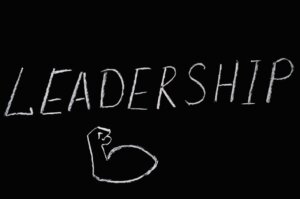This is a guest post from coach and consultant, Dean Middlebrook of Management Development & Marketing at Canon Europe Ltd.
(Although the following blog post mentions therapists and clnicians, the guidelines are useful to anyone who is interested in using coaching for themselves, even if they aren’t interested in seeking professional levels of competence in coaching.)
In a clinical setting the terms ‘shadow of the therapist’ and ‘wounded healer’ are often used synonymously to describe an unhelpful and un-therapeutic relationship where the clinician misuses the client relationship to work through his/her their own healing needs. The focus moves away from the client’s needs and towards the helper’s emotionally unhealthy and potentially harmful agenda.
Now, of course, the coaching relationship isn’t generally a therapy; however, the idea of the ‘shadow of the coach’ and the ‘wounded coach’ are compelling topics that I think need to be raised in coaching development programmes. And upon reflection, I’ve observed toxic coaching is the following forms:
1) Need to control the agenda within the client relationship
2) Need to create an unequal balance of power within the coaching relationship
3) Need to take responsibility for the solutions to a client’s difficulties
4) Need to create a relationship of dependency between the coach & client
5) Need to take on the role of ‘saviour’ and ‘rescuer’
6) Need for client to praise, respect, adore, and flatter the coach
7) Need to instruct, sermonize, direct, and give advice
8) Need to feel superior
9) Relishes in the power of the coaching role without sufficient training and supervision
10) Over indulges in too much self-disclosure
11) Expects gratitude on the part of the client
12) Becomes defensive, resentful or aggressive when challenged by clients
13) Takes coaching relationship into the therapeutic realm
14) Probes without clear ethical boundaries
15) Pathologizes a client’s problem
16) Always blames the client when the coaching relationship breaksdown or when the relationship fails to show meaningful outcomes (refuses to take any responsibility for the failure to achieve meaningful outcomes)
17) Misuses knowledge to assert authority
18) Intellectualizes issues as way of asserting credibility and respect (i.e. “I’m smarter than you, so you had better listen to me”…or, “I know you better than you know yourself”)
What do you think? Can you add anything to the list?
—
For many related, free online resources, see the following Free Management Library’s topics:
- All About Personal and Professional Coaching
- Communications Skills
- Skills in Questioning
- Systems Thinking
- LinkedIn Discussion Group about “Coaching for Everyone”
————————————————————————-
Carter McNamara, MBA, PhD – Authenticity Consulting, LLC – 800-971-2250
Read my blogs: Boards, Consulting and OD, and Strategic Planning.
 Sections of this topic
Sections of this topic
















